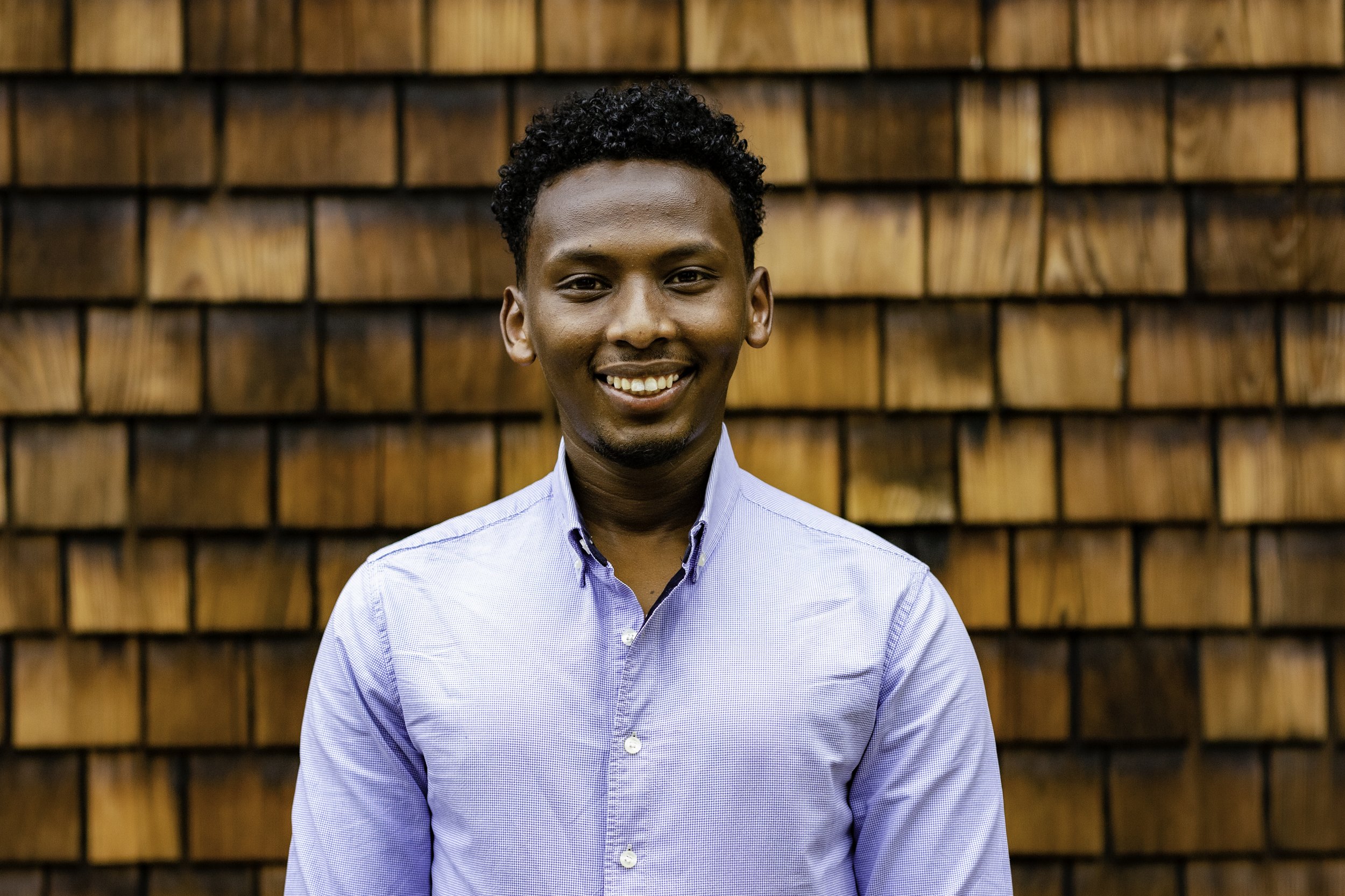"My scholarship from the AFPC is a motivation and an encouragement award"

Idris Muktar is a master’s student at U.C. Berkeley’s Graduate School of Journalism. Prior to graduate school, he worked as a journalist across Africa for DW, CNN, among other national, regional and international news outlets. In 2021, he received an Annual Scholarship Award from the Association of Foreign Press Correspondents in the USA. Specifically, he reported on prominent issues across the continent including the 2015 President Barack Obama’s visit to Kenya, Pope Francis’s maiden visit to Africa, the 2019 South African elections. He was the lead producer in Addis Ababa for CNN’s coverage of the 2019 crashing of Ethiopian Airlines flight 302 that killed 157 people. At Berkeley, he is looking to advance his years of field experience in journalism and sharpen investigative reporting skills. Idris is a MasterCard Foundation Scholar and a 2021 Human Righters Center at Berkeley Fellow.
Idris Muktar
What was the primary reason you chose to pursue your master's studies in the United States as a foreign journalist?
The United States is known for its leadership in press freedom. With a developed mass media in the world, it was ideal for me to come, especially to UC Berkeley, not only because I would be steering this leadership back at home but also, I would be a part of a diverse environment that consistently encourages growth backed by ample resources for its scholars to tread new paths in the journalism field.
You were recently awarded a scholarship from the Association of Foreign Press Correspondents in the United States. How did you feel about this recognition?
It really means a lot, it’s a motivation and an encouragement award. Especially to me, largely because a lot of young people get into journalism to cause change for good, for the betterment of our society or that small community that we come in contact with. This award is a pat on the back, it’s a clap for those moments where writer’s block hits hard or sources don’t come back.
As a journalist, how do you expect your studies and the support from the Association of Foreign Press Correspondents in the United States to help you advance your career?
I believe that the J school at UC Berkeley as well as the mentorship and support from the AFPC goes a long way to ensure that I continue to produce impactful work. I have always been passionate about refugee and human rights issues and stories. Therefore, mastering the art of storytelling would come in handy when sharing the story of the destitute and those pushed to the edge as a result of conflicts around the world.
What made you decide to become a journalist? How do you hope to make an impact in the journalism field of your country of origin?
As a youngster, I saw what journalism could do for my community. Korogocho, Nairobi’s undercity, is a place I called home but also a crime haven and the Kenyan government’s forgotten project. Here, respect for human rights was just a theory as people lived in shacks or dilapidated makeshift structures that we called home. It wasn’t until an issue was reported in the local newspaper- Daily Nation- that you would see a pseudo response from the government or see police patrolling the neighborhood where women were mugged in daylight or cartels hoarded water. It is for this reason and for the immediate impact that I wanted to be a journalist. To give a voice or simplify to amplify. For the transformative impact on people’s lives.
As a foreign journalist, what defines your mission?
The deep urge to stand by what is right and effect change by providing information that is humanly impartial.
What do you think is the greatest threat to journalism today?
The biggest threat to journalism today is the lack of financial support for the craft. This has demoralized a lot of journalists and eventually led to shortcut journalism which has, in turn, propagated clickbait and misinformation. Misinformation, in this age of technology, spreads faster than wildfire. Therefore, it becomes the challenge of my generation to invest in journalists and journalism, so as to be a force for good.
What is the state of press freedom in your country of origin and how do you hope that your work will encourage more people to access independent and credible information?
Press freedom in Kenya, my home country, is like a sick person on his deathbed. Kenya ranks 102 on the 2021 World Press Freedom Index. Journalists around the country continue to face intimidation, physical or online harassment, surveillance, disappearance, threats, assaults, and lack of access to public facilities, authorities, or data. There is nothing like a FOIA request for data or documents.
As much as the internet has become a curse, it's equally beneficial to our work and made news consumption easier. I believe in good old-fashioned shoe-leather reporting. If we, I included, demand an endeavor for the development of impartial reporting and objective journalism that holds the powerful accountable and forces the craft to be a force for good, then we will see a return of the good old days where journalism was respected and treated in a holistic way. That is my hope.

